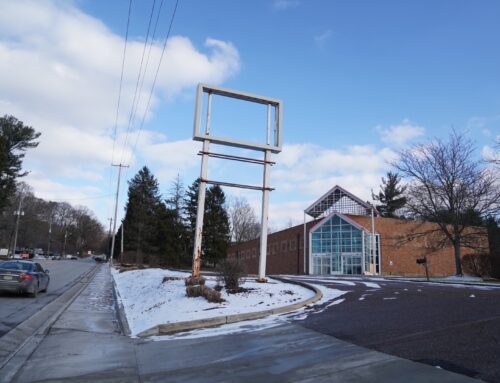Three new medical marijuana dispensaries set to open in New Orleans as industry expands
June 2, 2025
Three new medical marijuana clinics are under construction in New Orleans and Jefferson Parish, including a location on Bourbon Street, which when completed later this year will double the number of dispensaries in the metro area as the local cannabis industry continues to expand.
The new facilities will be located in the 400 block of Bourbon, on S. Carrollton Avenue near Willow Street and in a former Rite Aid store on Manhattan Boulevard in Harvey. They join existing locations in the Warehouse District, Metairie and Kenner.
The outlets, which are owned by two separate investor groups with common though not identical memberships, are all managed by an arm of one of the state’s two licensed growers, Good Day Farm, and will do business under the brand name NOLA Cannabis Co.
The growth in the number of local clinics comes nearly a decade after the Louisiana Legislature passed the first set of bills legalizing medical marijuana and as acceptance of the drug continues to grow.
In the first quarter of 2025, nearly 98,000 patients made at least one purchase of medical marijuana at one of the nearly two dozen dispensaries currently open in the state. Fewer than 37,000 made a purchase during the comparable period in 2024.
“Much of the growth is because of greater access to dispensaries and products,” said John Davis, president and CEO of Good Day Farm, which is licensed to grow and manufacture the cannabis products sold in the state. “There’s also a great deal of education that we do to help overcome the stigma around medical marijuana.”
Davis also heads the affiliated management company, Good Day Farms Retail Management, that will run the six NOLA Cannabis sites.
Adding more dispensaries
The new facilities, when completed, will bring to 29 the number of dispensaries operating in the state. A total of 30 sites are allowed by law. Each of the 10 licensed retail operators are allowed to have three locations.
State law created 10 retail licenses originally, awarding one in each of the nine hospital districts in the state and two in the New Orleans area, which includes Jefferson, Orleans, Plaquemines and St. Bernard parishes and is the most populous in the state.
The law originally allowed for one dispensary per district and was later expanded to include a second satellite per licensee and, more recently, a third.
Currently, 23 of the 30 possible sites are up and running across Louisiana, Davis said.
The local dispensaries are owned by two separate legal entities that have common ownership. Among the major investors in each is Arkansas-based attorney Alex Gray, who is listed as the manager on incorporation papers filed with the Louisiana Secretary of State; New Orleans plaintiff attorney James Williams, who chaired the LSU Board of Supervisors during Gov. John Bel Edwards’ term, and Capt. Lee Jackson, one of the first Black river pilots in the state.
Williams and Jackson are the public faces of the ownership groups, which are private and do not disclose the names of their other investors, said Davis.
In a prepared statement, Williams said NOLA Cannabis Co. outlets will up the game of medical marijuana clinics.
“These aren’t just dispensaries—they are places where patients are respected, informed, and empowered,” Williams said. “We’re here to help remove the stigma surrounding cannabis.”
Approval in 25 minutes
Part of the stigma around medical marijuana, according to critics, is that it is seen as being used for recreational purposes instead of medicinal ones and that it can be a gateway drug to more addictive and dangerous substances.
Louisiana law requires that dispensary customers have a prescription from a medical doctor, nurse practitioner of licensed clinical psychologist who has determined that the cannabis will help treat a “debilitating condition.”
The law also allows dispensaries to accept medical cards from telemedicine providers. NOLA Cannabis Company is partnering with such an online provider, Good Canna Now.
Patients visiting a facility can scan a QR code on their phone, schedule an appointment and submit an online form. An authorized clinician then calls the patient and conducts a consultation online or over the phone. If appropriate, a medical marijuana recommendation is sent by the clinician to the patient’s choice of licensed dispensary and the patient may then begin selecting products for purchase.
Davis said he tested the process anonymously on his phone and the whole thing took less than 25 minutes.
Despite greater acceptance of medical marijuana, at least one of the dispensaries under construction is causing some concern among neighbors. The location planned for 1407 S. Carrollton, which, for decades, was a medical office, is near a school and next to a public library.
Some residents say the site is inappropriate for a dispensary, though they acknowledge the site is commercially zoned and that there is nothing in local law that would bar the clinic from opening there. Others questioned if it should be so easy to get a prescription.
“Most people are not vehemently against it but they are uncomfortable,” said Debra Howell, a board member of the Central Carrollton Association, which has not taken an official position on the matter. “Maybe it’s another example of zoning laws and land uses not keeping up with the times.”
Susan Johnson, who heads the Town of Carrollton Watch, a neighborhood advocacy website, said she is opposed to it.
“We don’t need it and at least some of us will publicly state that we don’t want it,” said Johnson. “The store’s impact on the neighborhood — traffic, lighting, and nuisance problems related to drug use — cannot be good.”
Davis said he welcomes an opportunity to come talk to the neighborhood and dispel what he says are misconceptions.
“Data shows our typical customer is a woman in her 40s,” he said. “The facilities are clean. They are spa-like. Customers are treated with respect. There is a lot of education that still needs to be done and people just do not know much about it because it has been stigmatized so much.”
Search
RECENT PRESS RELEASES
Related Post


